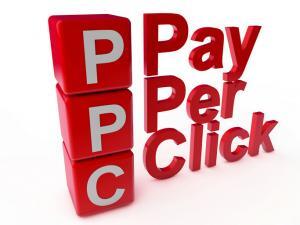Google AdWords: To Click Or Not To Click?
This is a popular question when I speak about PPC advertising: “Do People Really click On Google AdWords Ads?”
The answer is clear: Yes, they do! However, since not all clicks are created equal lets discuss more details to answer this question. It’s a key question because ad spend on pay per click can be a major budget commitment for most businesses. If these clicks translate into highly qualified leads and thus more revenue, giving a compelling answer to this question is important. Good advertising should generate a positive ROAS, or “Return On Ad Spend.” Advertising over time should pay for itself plus create profit. Let’s cover some background details before I answer the Google AdWords ad click question.

Organic Clicks Versus Paid Clicks
There are two different types of clicks on the typical SERP page. SERP stands for “search engine results page.” In short, the results or information that shows up on your browser page once you type in a keyword phrase then hit enter. Google displays these search results in a common format on the browser page. The format has evolved over the years, especially since mobile searches have become a leading source of searches. Google sometimes changes the results page to improve user experience and make it easier to see and find quickly what you need. Items that used to appear on a Google search page may appear in different places over time, or not at all.
For example, last year Google removed the right-hand column side bar ads on their search page. Seven or eight ads used to show up on the right-hand column. Not any more. For desktop searches there may be four paid ads on the top and three paid ads on the bottom with no paid ads showing on the side bar, except for occasional product ads. Organic, or free results on the search page, typically show up in the middle of the SERP page. To get on the first page middle organic section takes time, effort, and a well designed website that grades well on Google’s ranking system. There are many variables that determine your website’s organic strength. The right keywords, page load speed, domain authority, external links, age of domain, mobile responsiveness, plus many other factors that determine your website’s organic ranking and placement.
Mobile Matters Of Ad Placement
When we think of the mobile SERP page it’s even a more specific animal. Because there’s not nearly as much screen real estate with mobile as with a desktop or laptop, Google and other search engines like Bing have to limit both paid and organic page space. Remember, a mobile SERP page is smaller. Less space. More focus. Thus, there is only room for three paid ads at the top of a mobile search screen. Consequently, makes less room for organic free placements.
How Many and What Type Of Searches Result In Google AdWords Clicks?
For searches using high commercial intent phrases, or what is called sponsored or transactional searches, roughly 64.6% of paid ads result in a click with 35.4% coming from organic searches. The critical phrase here is “high commercial intent.” These searches mean that the searcher is looking to buy something. The phrase,”buy subscription sunglasses” is worth far more than the phrase “who is Thomas Edison.” The word “buy” plus a specific product or service indicates intent of the searcher. This person needs sunglasses and they are ready to buy. The intent is a purchase intent, not just a mere browsing or information seeking intent. That means that commercial searches outnumber normal searches by a 2:1 margin. It’s high intent versus low intent. Transactional versus information searches. Other high intent words may be “discount, deals, coupons, and free shipping,” just to name a few.
So paid search does indeed pay. When people are looking to buy they do click on paid search ads like Google AdWords and Bing Ads. Intent matters and nothing is better than PPC advertising to capture purchase intent. Organic and SEO is very important and I would never discount its benefits. In fact, combining both paid search and a strong organic website is a winning combination. This way, both barrels of the digital advertising shotgun are firing. Even more of the page, both top and middle, are covered with your ads and your brand awareness campaigns. You can’t beat that and you can’t beat paid search when it comes to capturing what matters most for your business: Capturing someones intent and interest at the very moment they are looking to buy your product or service.
If you need help with paid search, feel free to contact Atkins Marketing Solutions.
By Stuart Atkins


Leave a Reply